Fragments of a Hologram Hogwarts: What should science fiction’s answer to Harry Potter look like?
But rather than deciding which of the numerous past versions of the monomyth should be awarded the title of “scfi’s Harry Potter,” I’m much more interested in what the next version will be. (I’m especially interested in writing it, but I’ll settle for reading it.) It seems clear that another hero’s journey is in order. It need not necessarily proceed through all seventeen stages of the monomyth Campbell describes, but the basics should be there. After all, why monkey with a formula which has worked for millennia? It resonates with something Jungian inside us, whether we want it to or not. Yet while the hero’s journey should form the basic plot, the exact trappings of the monomyth will be important if they are to capture popular attention in the way Rowling did. One fan I think may have hit on why Harry Potter managed to capture the Gryffindor’s share of the market.
“Harry Potter had a protagonist who was introduced to the audience at just about the right age to make a pre-puberty connection that can last. It is of no importance if that book came in the shape of a fantasy, or sci-fi world. The character growing up alongside the audience is what made it stand out… If the protagonist changes and keeps impressing your audience with growing up, then it will … hopefully create an avalanche as existing fans keep sticking to it, promoting it…. Younger readers can still pick up the earlier editions, giving the continued sales two possible points of entry… The reader growing up with Harry Potter is the right engine.” (Asbestos_Underwear, comment on Anders, 06/02/2010)
So the protagonist, in the first book, at least, should start out prepubescent. (Eleven worked nicely for Harry.) This child (best to be an orphan, but at least to have a birth shrouded in mystery) discovers he or she has startling abilities (which must be based in science, not magic). The hero is recruited by a mentor figure into a school for similarly talented children. There is an even more (scientifically) powerful Enemy, who is attempting to destroy the child, and the school (or even better, to co-opt the child and the school’s science for his or her own nefarious ends). The hero makes close friends along the way who assist him, but also encounters those mean kids who are found at almost every school. (In other words, pre-teen angst typical of any normal middle school, only it’s not exactly a normal school.) After a near-death experience, the hero comes out stronger, defeats the Enemy, and saves the world (or the galaxy). And let’s definitely grow up with the hero and her or his friends as the hero’s journey develops over several installments. (Hmmm. I think I’ve just outlined something close to the plot of the X-Men movies.)
The key is going to be making such a plot fit within scifi conventions. The “special abilities” the protagonist has are going to be a key element. Ay, there’s the rub. In a fantasy or superhero universe, it’s easy to explain why such talents are held only by a few individuals. But in any science fiction that’s not really fantasy in disguise (one word – mitochlorians), the character’s talents must be scientifically based. Genetic engineering and nanotech seem obvious choices given current trends, but the problem with any scientific explanation of “specialness” is that the hero’s inherent uniqueness is lost if his or her powers are based in science. Science is by definition reproducible. (Otherwise we would call it a miracle.) Technology doesn’t play favorites (except socioeconomically), so there should be nothing preventing anyone from using the same scientific powers as the protagonist. Anyone can be a hero. So science fiction may, in fact, be incapable of producing an analogue to Harry Potter due to the conventions of the genre.
Is a scifi Harry Potter, after all, self-contradictory? Is the hero’s journey, which in its past incarnations has been dependent on supernatural aid, by definition incompatible with a high-tech world? There surely must a way to fit the monomyth into the modern world, of course, for Ender’s Game and Dune both managed it. (So look carefully at them for hints on how to do it.) But it will take some imagination. Fortunately, scifi has plenty of that.
Works Cited:
Anders, Charlie Jane, “Which novel is science fiction’s Harry Potter?” in io9, June 1, 2010, 4:00pm http: //io9.com/5552625/which-novel-is-science-fictions-harry-potter
Campbell, Joseph. The hero with a thousand faces. Bolingen Foundation, 1949.
Card, Orson Scott. Ender’s Game. Tor, 1985. Later revised in 1991.
Hayden, David Alastair, “An interview with Lou Anders” Redstone Science Fiction, no. 1, June 1, 2010, 12:00am http: //redstonesciencefiction.com/2010/06/redstonesciencefiction-01/
Herbert, Frank. Dune. Philadelphia: Chilton Books, 1965. Previously published serially in Analog, December 1963 – February 1964 – May 1965.
About the Author: Henry Cribbs somehow managed to sneak his science-fiction poem about Schrödinger’s cat into the literary art journal Lake Effect, and has also published book reviews for Philosophical Psychology, Chicago Literary Review, and Black Warrior Review. He taught philosophy and creative writing at the University of South Carolina for several years, and now forces his high school English students to read Ray Bradbury. He currently serves on the editorial board for Nimrod International Journal of Prose and Poetry.
Navigate: Page 1 Page 2

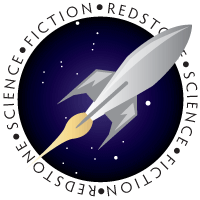
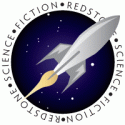





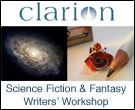


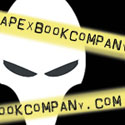
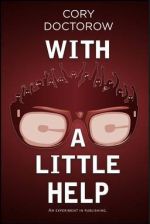
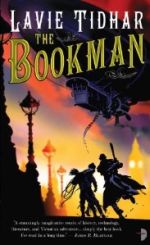
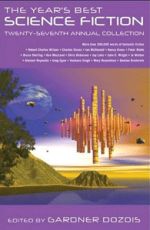


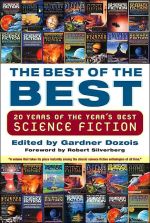
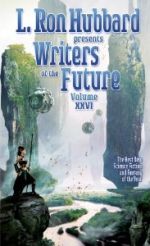

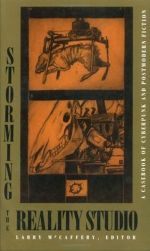



7 comments
[…] Fragments of a Hologram Hogwarts: What should science fiction’s answer to Harry Potter look like? by Henry Cribbs […]
Alan Dean Foster’s Pip and Flinx stories? But no. I think there are more elements to Harry Potter which make it such a watershed for fantasy, though: one of them is that we’re not just watching Harry grow, we’re watching Hermione, Ron, and yes even Malfoy. We’re seeing young boys and girls become young men and women, friends, enemies, all in this journey.
The closest SF I can think of for that is perhaps Heinlein’s Space Cadet, but it starts with the group too old, and doesn’t continue for 7 (increasingly long) novels. Ender’s Game certainly comes close, but Ender is brutal in ways which Harry isn’t, even when he is accidentally maiming Malfoy with sectumsempra; and there is not the Harry-Hermione-Ron give and take, the group and relationship growth and true non-secondary characters.
[…] Henry Cribbs, our monthly columnist, considers the idea that Lou Anders raised in his interview with us in Issue #1 – What is science fiction’s answer to Harry Potter? As usual, Henry mixes a fan’s enthusiasm with an academic eye to a produce an entertaining and thoughtful piece. […]
I think SF can’t generate its own Harry Potter, for some of the reasons stated here, but I would take it a lot further. I think SF is more difficult than fantasy; harder to write, to read, and to think about. Fantasy panders to wish-fulfillment; as Mr. Cribbs notes, it’s easy to explain how a fantasy character is “special,” and not so easy in SF. But what really is being “explained” in fantasy? Generally what counts as “explanation” is only assertion. Powers, prophecies, etc, are there simply because they are said to be there. *Nothing* is truly explained in any real-world sense. It is, as Robert Frost said in another context, playing tennis with the net down. Example: I just watched the 1st 2 seasons of Lost. Based on where that show was after 2 seasons, would you say it would be easier to wrap it up in a SFnal way, or a fantasy way? So you have weird things happening on the island, and naturally people are wondering why, and if the answer turns out to be, “Because it’s magic,” not very many people are going to be satisfied with that answer–so they introduced a couple of godlike characters, and then if weird things happen it’s because the godlike characters make them happen, but it’s really just the same thing. Just a more complicated version of “Because it’s magic.” The smoke monster is a malevolent spirit, able to create perfect simulacra of humans, yet imprisoned on an island for millennia? Sure. Whatever. Naturalistic explanations would be much harder, and they might force people to confront some comforting, tranquilizing beliefs. Unfortunately, a population with the intellectual depth of a community-college-grad, untrained in critical thinking, in search of easy affirmation, in a country where Sarah Palin, for instance, is able to fill stadiums based on a persona that celebrates ignorance, where this–http://www.theonion.com/articles/nation-shudders-at-large-block-of-uninterrupted-te,16932/–is funny because it’s true, where (I speak from personal experience here) knowing a simple fact like the circumference of the earth makes you “weird,” is unlikely to understand.
How do you wrangle a science-based specialness? Easy – a maguffin. It’s been done all over the place. Rowling even dabbled in it – Harry gets to do cool stuff not just because he’s got a pedigree, but also because he stumbles into special items like the invisibility cloak. Hell, it’s the entire point of Lord of the Rings.
Stanley Scifi finds a cool thing that does cool things. The cool thing is special, and due to special circumstances he becomes guardian of the cool thing, in spite of being for all appearances completely ordinary. The cool thing has to be protected from bad guys/delivered somewhere/destroyed/etc. ADVENTURRRRE! Stanley has experiences which change him, until he is maybe not so ordinary anymore and possibly worthy of the title “hero”.
Stanley also has a cute animal sidekick. There, I just sold a hundred thousand copies.
Perfect.
We’ll expect a check ;-)
If I can summarize your later points: the Hero’s Journey is predicated upon Destiny, a guiding force with an end in mind; and science fiction generally rejects destiny because the laws of physics don’t play favorites.
But the laws of statistics DO play favorites, if you listen to Louis Pasteur: “Chance favors the prepared mind.” And indeed, this is the pattern in both Heinlein coming-of-age stories and also in Ender’s Game. Sometimes by dint of natural inclinations but often by subtle and overt mentoring, the young protagonist endures lessons and challenges that prepare him or her for greater challenges that await. (I can’t say for Dune, since I’ve never been able to get past the fourth chapter. Every decade or so, I try again, and get stuck in the same spot.)
Yes, some of that applies to Harry Potter as well. Dumbledore hints, for example, that Neville could just as easily have been the chosen one under different circumstances. And Harry’s final prowess is shaped by all his teachers, formal and informal.
But destiny and prophecy are still at the root of Harry’s specialness. In Heinlein and Card, it’s aptitude that counts, not destiny, and then that aptitude must be honed.
I think one way a SF equivakent would be possible would be to deemphasize the individual. Make an ensemble piece that follows a group of varying ages. This could have something of a soap opera feel; but teen ensemble soap operas have a long history and a following. The challenge would be to include the soap opera elements that make kids (and other soap fans) care about the characters, but then place those against a backdrop of some looming menace. The story would start with the characters prominent and the menace mostly hinted. Over time, as they grow, they realize the menace has always been there, kept safely out of their knowledge by the adults. As they realized its scope, the soap opera elements would seem silly, even petty. At the same time, some of them would long for the days when those were their only concerns. Maybe some even would retreat back to those concerns, and deny the larger menace.
Assuming the conflict is a war (the easiest assumption), the story could start with early teens, and follow into young adulthood. As the characters separated and followed their individual courses, the scope would naturally grow: from a neighborhood and a school, to a nation, to a star system, and beyond.
I think I’ve just described Starship Troopers retold over 7 volumes, with a larger cast. Please, please, whatever you do… DON’T LET PAUL VERHOEVEN ANYWHERE NEAR IT!